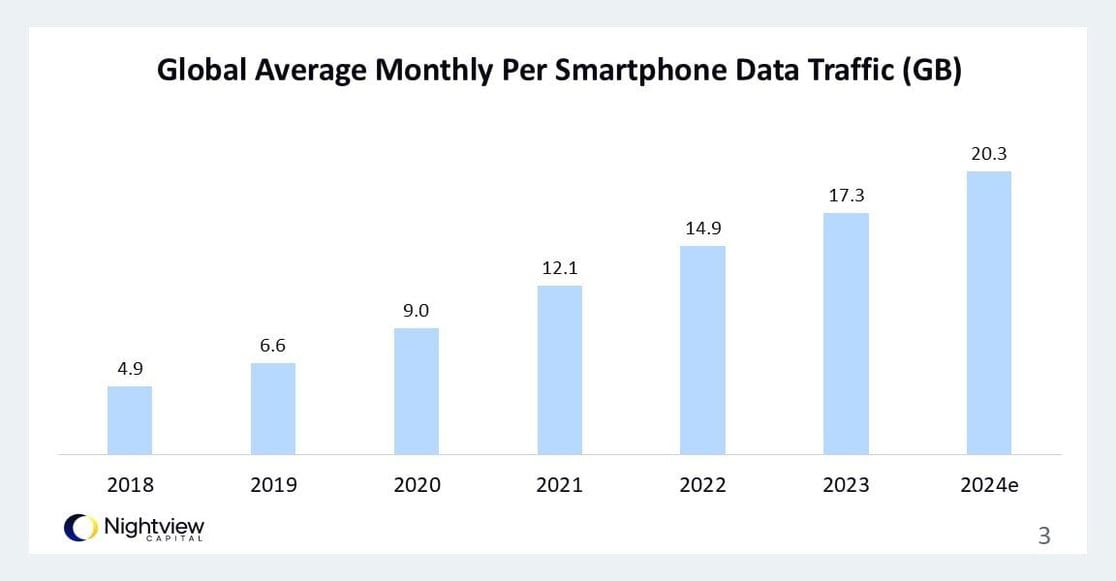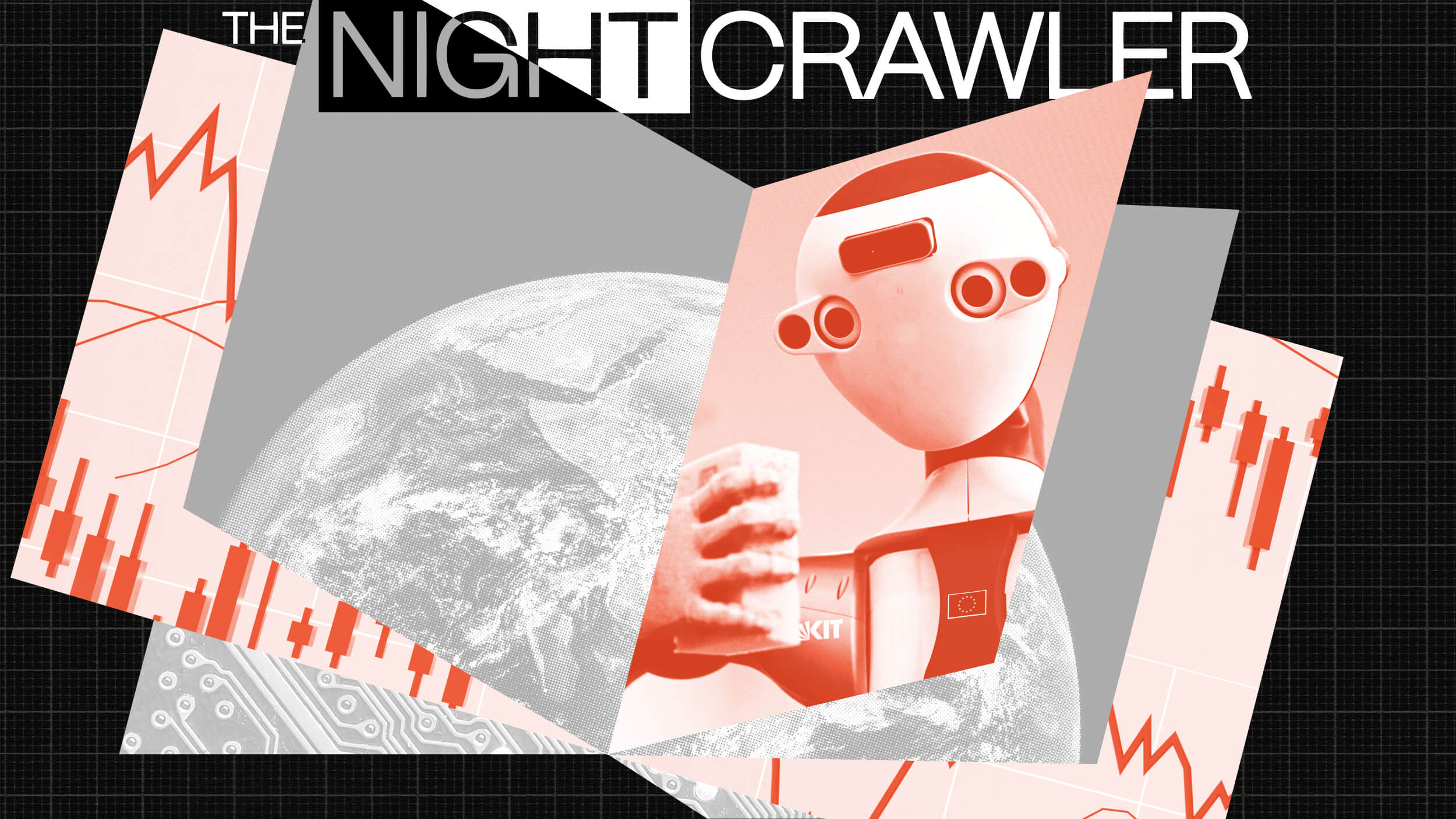The thin line between genius and madman

- Main story: A recent profile published in Tablet Magazine offers a rare glimpse into the mind of one tech’s most unconventional and controversial figures: Palmer Luckey.
- Luckey founded the VR firm Oculus in 2012 and cofounded the defense technology company Anduril Industries in 2017.
- Also among this week’s stories: a mental model for long-term investing and five charts that show how smartphones have driven the growth of the internet.
This long-form profile of the entrepreneur Palmer Luckey offers a rare glimpse into the mind of one tech’s most unconventional—and decidedly controversial—figures. It’s a story about risk, resilience, and the genius—and/or madman—fueling a growing empire. For the uninitiated, Luckey is the founder of Oculus, the VR firm that sold to Meta for $2.7 billion in 2014. Later, he founded Anduril, a tech startup that makes lethal autonomous weapons systems that was recently valued at $14 billion.
Luckey—who is just 31 years old—leads a lifestyle that reads like a science-fiction novel: underground bunkers. A decommissioned nuclear missile base. AI-driven drone attacks. Jeremy Stern, the writer of the profile, endeavors to explore the inner workings of Luckey’s mind—literally. As we learn in the piece, Luckey “recently built a bypass for his peripheral nervous system… to pipe sounds into his skull so that instead of having to call him and wait for him to pick up, Anduril employees could just pick up a designated Palmer Phone and talk straight into his head.” He continues:
Key quote: “But if he is perhaps the wildest misfit tech diva of his generation, with a torrid ambition and engineering prowess rivaled only by Elon Musk, Luckey is also, in a way Musk is not and cannot be, the product of something more familiar—the heir to a 100-year revolution in American society that made Southern California the techno-theological citadel of the Cold War, and a one-man bridge between the smoldering American past and an unknown future that may be arriving soon.”
Four strategies to compound over the long term
Investing is often best understood through simple analogies.
In a recent essay, the investor Dan Shuart offers the following mental model for long-term investing: think of it like a snowball. In order to grow the snowball by rolling it down the hill, you need a variety of conditions to be met: the right slope, a long enough runway, the right type of snow, and no major barriers or cliffs. The analogy is a helpful reminder about the importance of patience, careful selection, and risk management in building for the long term.
Key quote: “The beauty, and the challenge, is you can choose which of these variables you seek to maximize. The catch is, you can’t maximize all of them (at least no one I’ve ever encountered can). In other words, you can elect to try to build a large snowball by rolling it down a very steep hill (i.e. swinging for the fences) or by giving yourself a very long runway. Unfortunately, there aren’t many hills that are simultaneously extremely steep, extremely long, and devoid of cliffs, and those that hunt for them often end up falling down a crevasse.”
A few more links I enjoyed:
GenAI: From Breakthroughs to Bottom Lines – via Rihard Jarc
Key quote: “Cloud providers want as many GPUs as they can get, but there are not enough, and they are really expensive, as Nvidia has a monopoly right now. The solution for all the hyperscalers is the same: build your custom silicon. Each of the hyperscalers is now in the process of doing that. In my view, it is their most important area for the next 10 years. Each hyperscaler is in the process of chip build-out, but there are quite significant differences in the maturities of their offerings.”
The big stack game of LLM poker – via Sarah Tavel
Key quote: “The net result is that in the short term, until an efficient frontier is reached on the marginal value of continuing to invest in infrastructure with the existing transformer architecture, or we run out of electricity, or a group pulls ahead with an untouchable lead, investment in this space by these giants should continue to increase dramatically, and costs necessarily precede revenue. The prize is theoretically so large, and if a clear winner emerges, their market opportunity so uncapped, you have to keep increasing your bet.”
The future of data centers — on land, at sea, and in space – via Freethink
Key quote: “The need for more data centers with more equipment in them is skyrocketing due to video streaming, more remote work, businesses shifting to cloud computing, and, increasingly, the development of power-hungry AIs, which are projected to increase data center power demand by 160% over the next five years. By 2030, data centers will be consuming 8% of all US electricity.”
Rockbridge Capital Management: First Investor Letter – via Peter Keefe
Key quote: “The company thinks in 20-year terms, unlike most publicly traded companies who are thinking about the next quarter’s earnings. For instance, to support its insurance company customers, Copart has accumulated more than 200 storage facilities (yards) around the country since its founding in the 1980s. Copart made the critical decision decades ago to absorb the short-term pain of buying instead of leasing its locations. Its main competitor did the opposite. That competitor has experienced rent increases and lease terminations, especially when exurbs have encroached upon a salvage yard that today might be better suited for redevelopment. This permanent advantage means that without lifting a finger, Copart grows stronger day by day, and its competition gets weaker.”
From the archives:
Failures of Kindness (2013) – via George Saunders
Key quote: “Do all the other things, the ambitious things — travel, get rich, get famous, innovate, lead, fall in love, make and lose fortunes, swim naked in wild jungle rivers (after first having it tested for monkey poop) – but as you do, to the extent that you can, err in the direction of kindness. Do those things that incline you toward the big questions, and avoid the things that would reduce you and make you trivial. That luminous part of you that exists beyond personality — your soul, if you will — is as bright and shining as any that has ever been. Bright as Shakespeare’s, bright as Gandhi’s, bright as Mother Teresa’s. Clear away everything that keeps you separate from this secret luminous place. Believe it exists, come to know it better, nurture it, share its fruits tirelessly.”
Nightpixels:
5 Charts Showing How Smartphones have Driven the Growth of the Internet





